Adapalene and Tretinoin: These terms can feel overwhelming when we have heard a lot about them and really wish to try for those popular benefits people rave about all over the internet. But you don’t really know much about them! Right, well, good that you are here, it shows you actually care about your delicate skin and don’t just use any active ingredients with half knowledge.
In the easiest way possible, let’s know everything about these fascinating and confusing terms, Adapalene and Tretinoin.
| Adapalene | Tretinoin |
| Can get over the counter | Needs prescription |
| Majorly used to treat light to moderate acne | Used to treat severe acne & all premature skin aging issues |
| Less effective than tretinoin | highly effective |
| Less irritating on the skin compared to tretinoin | Tretinoin can be irritating Cuz it’s very strong hence should be used carefully |
| Should be used at night | Should be only used at night |
| Recommended Concentration- 0.1% | 0.01-1% |
| Doesn’t show any data on treating photoaging | Treats photoaging |
Let’s know these scientific terms in a non-overwhelming language. So, to begin with, both Adapalene and Tretinoin are from the same family of Retinoid. Both are called Topical Retinoids.
Retinoid is an umbrella name for all vitamin A ingredients you can find in the market. It is the head of the family with 7 children
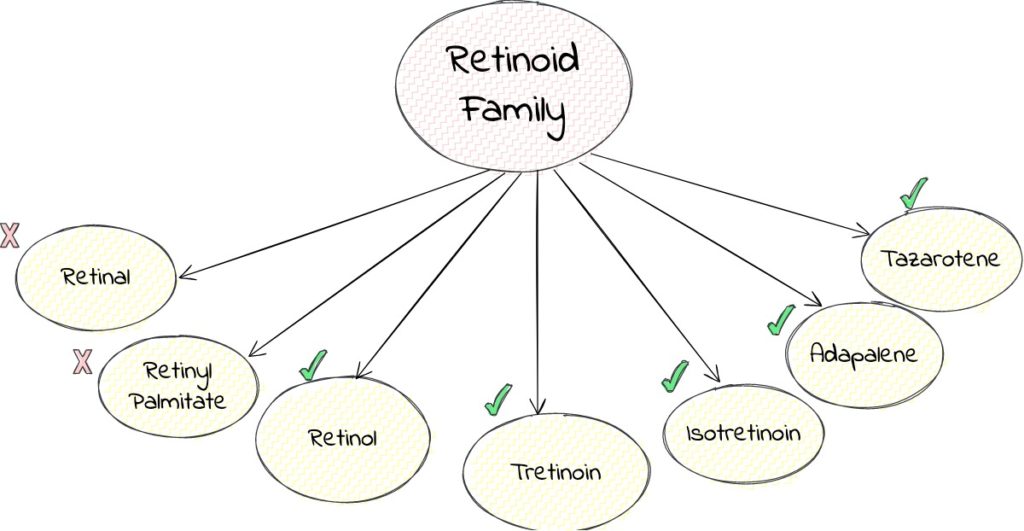
- Retinol
- Tretinoin/Retinoic acid/Retin-A
- Adapalene
- Tazarotene
- Retinyl Palmitate
- Retinal
- Isotretinoin
Know them quickly,
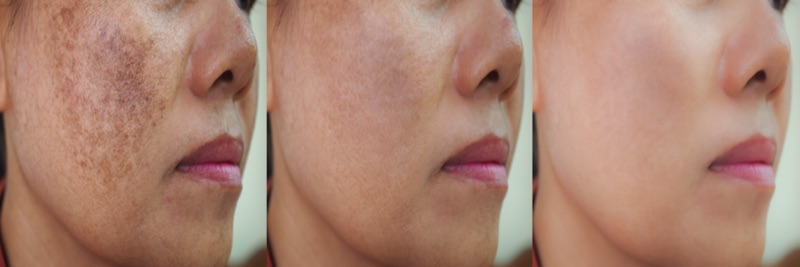
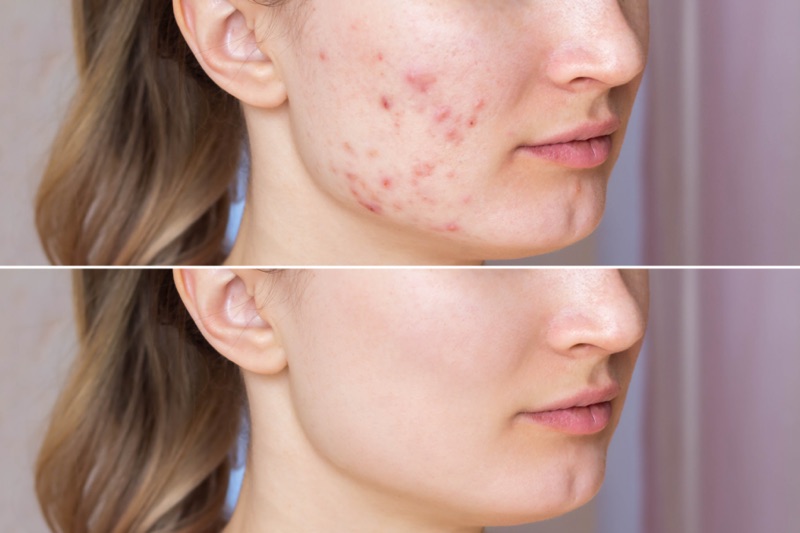
Retinol
- The most popular kid of all. Retinol is mild and hence can be found over the counter. It is a superb ingredient for treating wrinkles, and pigmentation, treating acne, increasing collagen production by going into the deep layers of the skin, eliminating dead skin cells, and generating fresh ones for younger-looking skin.
- Recommended Percentage – 0.25-1%.
- If you’re a beginner, start with 0.25%, 3 times a week and gradually increase to 1%, every other night.
Tretinoin /Retinoic acid/Retin-A
- This is the gold standard topical Retinoid which is majorly prescribed as acne treatment. A total bomb ingredient with the longest history of skin benefits. Tretinoin aka Retinoic acid is 20 times more effective than Retinol and is one of the best Retinoids.
- It is used to treat severe acne vulgaris, aged and sun-damaged skin with wrinkles, and all sorts of lines on the face. It is also said to be amazing in treating melasma, acne lesions, and hyperpigmentation.
- You only get it by prescription because it is very strong and needs to be used carefully.
- Only Retinoid which is FDA-approved for photoaging
- Recommended Percentage – 0.01-0.1%
Adapalene
- It has solid data about treating acne. The exciting part is this amazing ingredient recently became available as an over-the-counter ingredient (under the brand name, Differin) making lives easy.
- This synthetic retinoid has been shown to be gentler than tretinoin. It also helps in clearing acne marks but not much data is available about adapalene treating premature aging issues or any photodamage.
- FYI: Don’t exceed the quantity of more than a pea size.
- Recommended Percentage – 0.1%.
Tazarotene
- A beautiful derivative of Retinoid which is again majorly prescribed as an acne treatment by dermatologists. Very effective for hyperpigmentation, acne, acne lesions, and white, and blackheads as well.
- Tazarotene is also used to treat a skin disease called Psoriasis by slowing skin cell overgrowth and decreasing skin cell inflammation.
- Recommended Percentage – 0.1%
Retinyl Palmitate
- This stuff is pretty pointless according to the research and me. It is the weakest retinoid of all. Its skin penetration ability is also questionable so no retinoid fighting power is therefore a waste.
- Still Recommended Percentage – 1%
Retinal
- Retinal is not very effective, because of its serious stability issues hence the ingredient is not even easy to find in products.
- It just has slightly more efficacy than retinol.
- Recommended Percentage – 0.1-1%
Isotretinoin
- It’s called Oral Retinoid. It’s also known by the name Accutane. It’s prescribed for severe cystic acne.
- How does it work? – it basically dries up acne by decreasing the size of sebaceous glands in the skin.
- Sebaceous glands produce sebum and oil which ultimately turn into Pimples by clogging pores.
How do you keep track of them all? I’ll break all these Retinoids simply into 3 classes for buying purposes: Prescription, Over-the-counter and Cosmetic
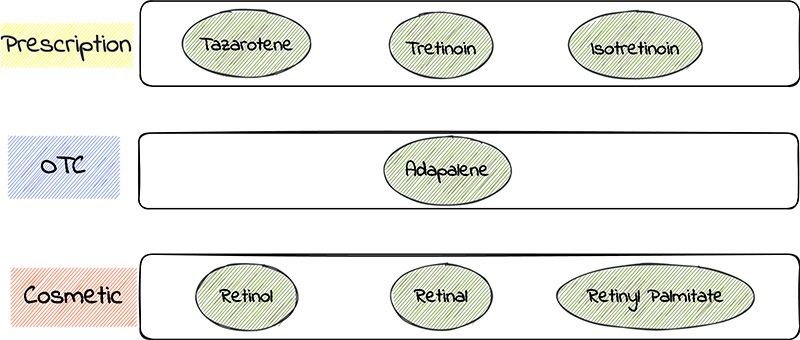
Rules to apply Adapalene and Tretinoin
- Always wear sunscreen when you’re out during the day. Using Adapalene and Tretinoin makes your skin highly photosensitive which means the skin is very sensitive to UV light.
- Use Adapalene and Tretinoin only at night.
- The safest method to apply Adapalene and Tretinoin is the ‘Sandwich Method’. First, apply a layer of moisturizer then tretinoin or adapalene, and end with again a layer of moisturizer.
- Do not mix Retinoids with any other ingredient except Niacinamide, Hyaluronic acid, and Azelaic acid. Retinoids are not friendly in nature with most ingredients.
- Do not use them very close to your eyes, mouth, or nose. (To be safer, Apply a layer of Vaseline around the mouth and eyes).
- For sensitive skin types and beginners, always start with the lowest concentration of Adapalene and Tretinoin.
- Never exceed the quantity of more than a pea size. Too much does more harm than good.
- Don’t forget to use them on the neck as well. The skin of the neck is thinner and ages faster.
- Don’t apply them on damp skin. Pat the skin dry first.
- Don’t forget to layer them with a non-comedogenic moisturizer.
- Start with using it twice a week and then gradually increase them every other night.
- Try and avoid any other potential irritants like Salicylic acid or chemical exfoliants when you begin to use adapalene or tretinoin. This can minimize your excess flaking or chances of over-exfoliation.
Who should not use Tretinoin and Adapalene?
- If you’re trying for pregnancy, are pregnant, or are breastfeeding. Do not use any of the Retinoids. Both Topical and Oral retinoids have multiple side effects on the developing embryo and fetus like a variety of birth defects, miscarriages etc.
- People with sensitive skin types like Rosacea and Eczema shouldn’t use them, it can increase skin irritation and make the skin drier.
How to handle Adapalene and Tretinoin skin allergic reactions?
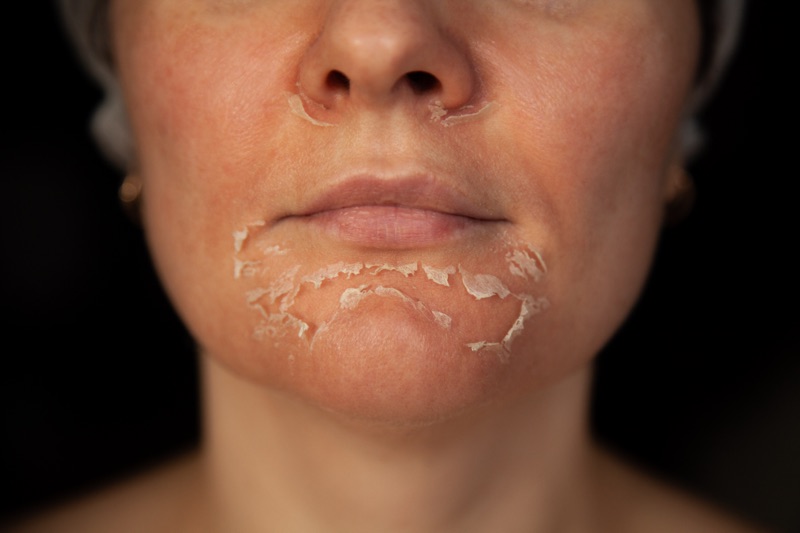
- Take cold showers or ice your face (wrapped in a thin cloth). Avoid hot showers at any cost.
- Avoid using cleansers or moisturizers with fragrances, alcohol, sulfates, and harsh chemicals like Polysorbate 20.
- Use Thermal spring water to calm the skin (Try from La Roche Posay).
- Don’t use any exfoliating fancy gadgets to wash your face, simply use your hands.
- Give a lot of moisture and hydration to the cracked and peeled skin for it to feel better. Apply moisturizers loaded with ceramides (Helps in skin barrier), Hyaluronic acid, and Oatmeal.
- Now, seal the skin with a light layer of Vaseline. It locks in all the goodies we’ve given and lets the skin heal faster.
- Stop using any other exfoliants, acids, AHAs, BHAs, Benzoyl peroxide, salicylic acid, or chemical peels until you are completely healed.
- Cica Balms, Shea butter, Glycerin, and Aloe vera, are great soothing and calming agents for the skin.
- Product suggestion- Try Avene- Cicalfate + restorative protective cream.
- Apply sunblock before stepping outside. Remember your skin is already in a vulnerable state. UV rays at this point can make it worse.
With these tips, you will be able to handle irritation, mild burn, or your purge phase. Purge phase? What is that?
What is Tretinoin/Adapalene Purge?
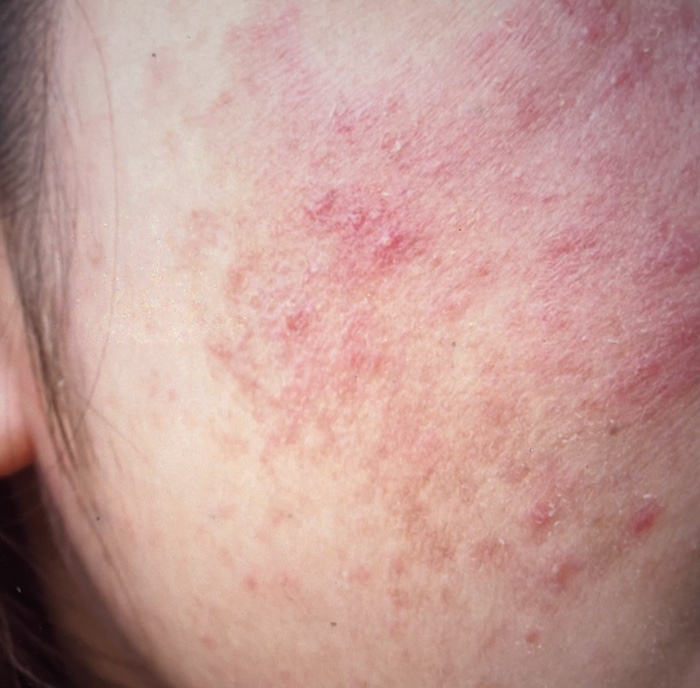
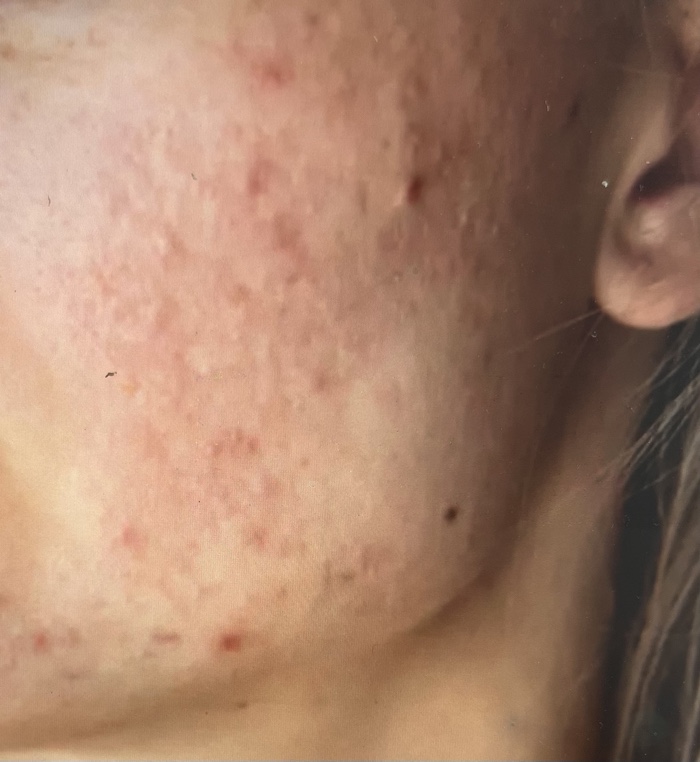
Tretinoin or Adapalene purge simply means, when you incorporate them into your skincare routine for the first time, your skin temporarily reacts to it by either breaking out, peeling, or drying. A range of black/white heads and red papules may also appear.
So, how does this purge make the skin better?
By the process of exfoliation and rapid skin cell turnover, it kicks out the impurities, excess sebum, dead skin cells, and dirt to the surface of the skin making the skin clean from the inside and activating young skin cells. The purging phase should last for 4-6 weeks maximum. It’s honestly a phase where your skin gets a lot worse before it gets better.
Although, if your skin feels a sensation of ‘itching’ or ‘burning’, that’s probably an allergic reaction and not purging. Purging should maximum feel like a mild tingle on the skin. Wash the Face immediately with cold water and spray some thermal spring water.
Does Tretinoin/Adapalene packaging and storage matter?
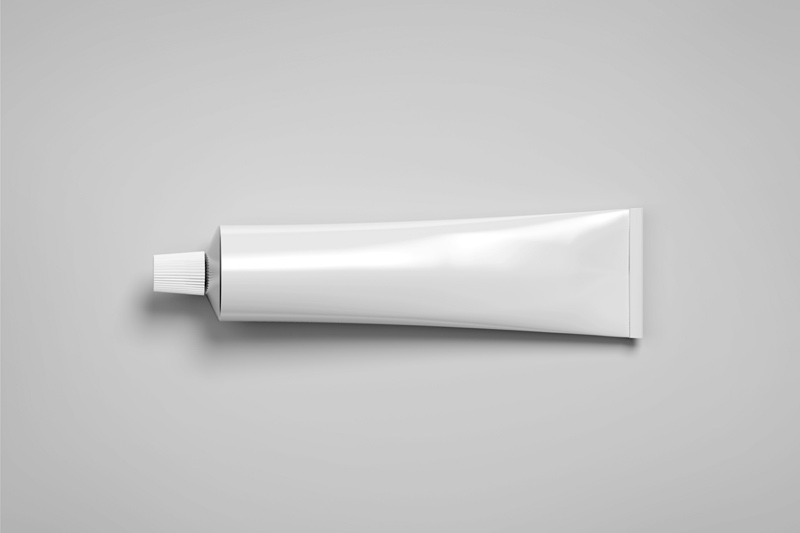
Storage: Yes, quite a lot! Keep both Adapalene and Tretinoin away from sunlight, else they will go rancid and you will never know why your skin isn’t improving! Your bathroom cabinets work just fine.
Packaging: Always buy these unstable active ingredients in the tube form packaging only. Tubes are the best and the safest form for all kinds of Retinoids.
When should you stop using Adapalene and Tretinoin?
When you get allergic reactions like,
- A rash or hives
- Blisters
- Watery eyes
- Burning sensation
- Red itchy skin
Symptoms of the allergic reactions are temporary and are mostly not very severe, in extremely rare cases a person may experience anaphylaxis, a life-threatening allergic reaction that requires emergency medical attention. Call 911
Conclusion
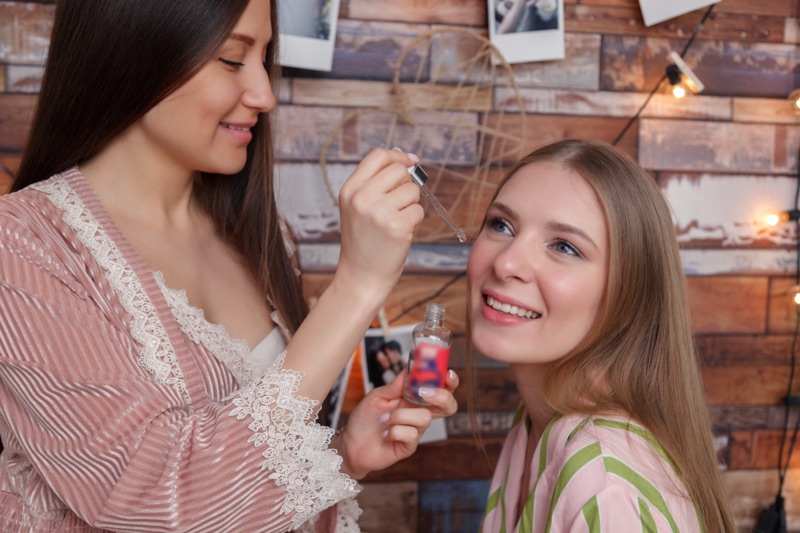
| If you want to treat light acne, go for Adapalene. It’s also easy to find over the counter and is less irritating than Tretinoin. |
| If you have moderate to severe acne and are probably dealing with fine lines, wrinkles, pigmentation, or sun damage, go for Tretinoin. It must be prescribed and used carefully and if you stick to the purge phase, the results are totally worth it. |
Love ~ Beauty Stroll